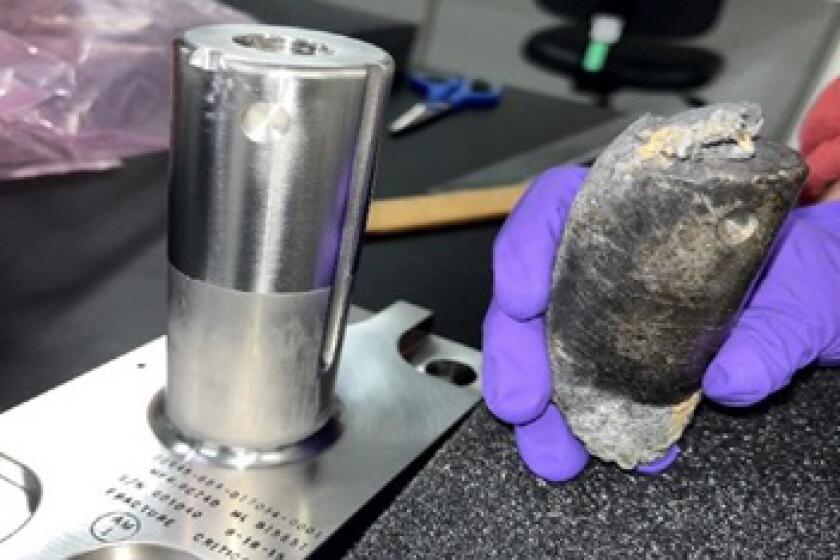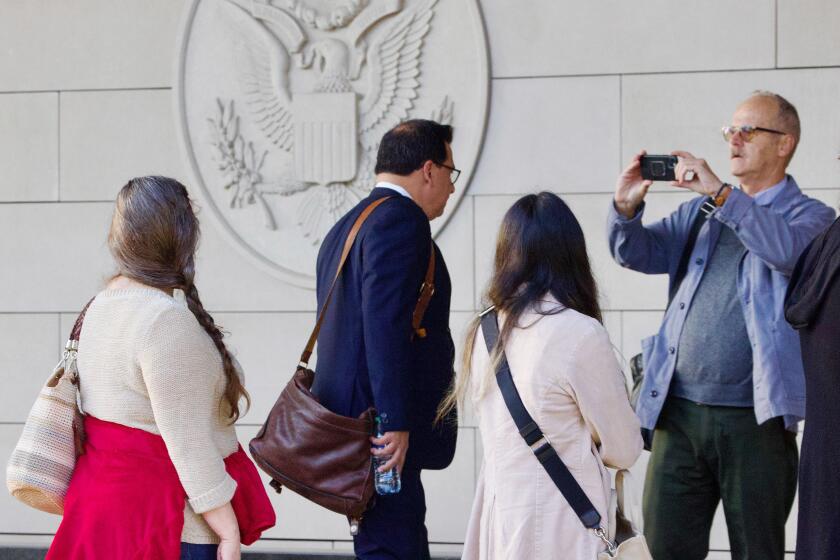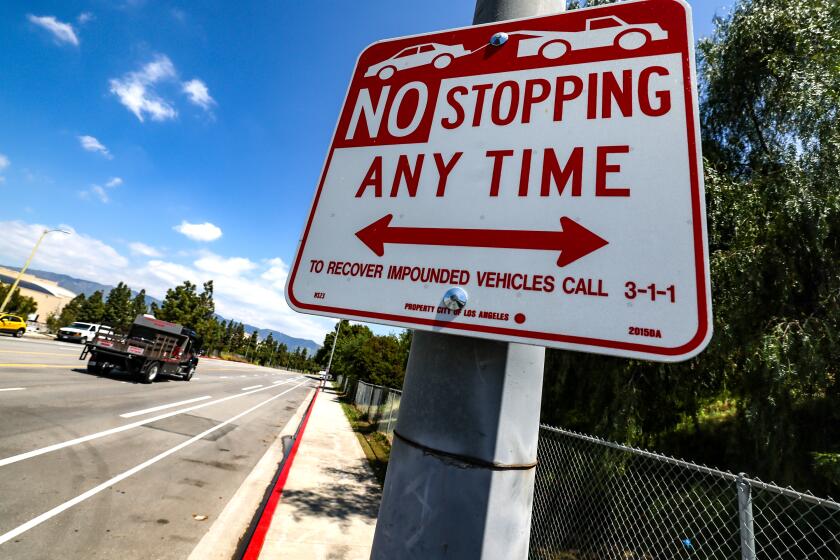Does Bratton deserve five more years?
Yes
Ramona Ripston
Executive director, American Civil Liberties Union of Southern California
William J. Bratton has a mixed record on civil liberties. He has worked to reform a department that still has not won broad support in the city’s African American and immigrant communities. Yet he defended the officers who shot Devin Brown, an unarmed 13-year-old, and a federal judge recently found that his police illegally searched people on skid row. Last week, LAPD officers bullied marchers and the media in an ugly show of force in MacArthur Park.Changing the culture of the Police Department is difficult. Bratton has worked to repair the damage caused by the Rampart scandal, and he supports real civilian oversight. He has changed procedures on how officers pursue suspects and led the charge for flashlights that cannot be used as weapons. On balance, he is leading the LAPD in the direction of needed reform.
**
Joe Domanick
Senior fellow in criminal justice,
USC Annenberg Institute for Justice
and Journalism
Bratton should be rehired but not with open arms and a blank check. Few question his crime-fighting abilities — crime in L.A. is down. But last week’s disgraceful performance by LAPD officers in MacArthur Park — responding to thrown bottles, cops indiscriminately used clubs and foam bullets to clear an area occupied by peaceful demonstrators and reporters — points to where Bratton’s attention needs to be focused: on a culture that’s still producing officers and sergeants too eager to use excessive force.The Police Commission should make it clear to Bratton, through policy directives and benchmarks tied to his evaluations, that a significant reduction in his officers’ use of excessive force is going to count as much as crime reduction in his second term. He also must do a better job of focusing on long-term crime prevention, given the abysmal rate of recidivism in Los Angeles, with thousands of young Angelenos annually joining their fathers and older brothers in our jails and prisons.
**
Heather MacDonald
Fellow, Manhattan Institute, and the author of “Are Cops Racist?”
The only question is whether the city will finally give Bratton enough cops to do the job. Bratton’s policing revolution has shown that rigorously managed law enforcement can change behavior. He has made inroads into Southern California’s seemingly implacable gang violence. With anywhere near the manpower of a New York or Chicago police force, he could drive crime down further in L.A.’s most troubled neighborhoods and set the stage for their economic revival. By doing so, he would refute the central myth of mainstream criminology: that the level of crime is determined by poverty, racism and lack of jobs. Finally, bolstered by a second term, Bratton should persuade the Justice Department to lift the unnecessary consent decree, imposed after the Rampart scandal, that diverts time and energy from the department’s crime-fighting mission.**
Carol Schatz
President and chief executive,
Central City Assn.
Bratton is an invaluable partner in our efforts to revitalize downtown. From fixing “broken windows” to fighting more serious crime, he knows that safety is the foundation of economic growth. We especially appreciate his support of the Safer City Initiative, which provides a balanced approach to dealing with unacceptable conditions on skid row.**
Constance L. Rice
Co-director, Advancement Project
Los Angeles
The chief has the right vision for a 21st century LAPD: “[A] police organization, effective against crime and potential terrorist attack, that conduct[s] itself lawfully, constitutionally and respectfully in a manner that is free of corruption, bias and brutality.” He agrees that LAPD culture and incentives must change to produce problem-solving policing that wins the trust of all poor communities of color. Acknowledging the destructive racial damage caused by LAPD actions, he seeks to transform police policy to reduce racial friction. Bratton fills critical positions with smart, progressive, problem-solving officers — leapfrogging them over officers who obstruct change. He enjoys sufficient confidence from the force, ensuring that the reforms he pushes will have a fighting chance to succeed. The chief listens to constructive critics on most issues and deflects political meddling. He does not hesitate to enforce unpopular changes, discipline or necessary risks needed for change. The LAPD is at a crossroads. It needs Bratton’s leadership to take it down the right road.**
Bob Baker
President, Los Angeles Police
Protective League
Although the officers’ union will not always agree with Bratton — and we do not expect him to always agree with us — he has shown a willingness to hear our views and weigh our positions. The current success the department enjoys should be shared by Bratton, LAPD officers and community and city leaders, and we hope to see this success continue.**
David W. Fleming
Chairman, Los Angeles Area
Chamber of Commerce
Bratton is one of the best police chiefs in the United States, as evidenced by the reduction in crime in Los Angeles under his watch. Serious crimes have declined 29% between 2001, the year before Bratton became chief, and 2006. That means that last year there were 55,035 fewer victims of robberies, rapes, assaults and other felonies than in 2001. The murder rate has been cut in half. We are doubly fortunate in that he has agreed to stay on for another five years.**
Jack Dunphy
Pseudonym of a Los Angeles police officer who writes a column for
National Review Online
Like most LAPD officers, I’m resigned to Bratton’s reappointment to a second five-year term. I am neither particularly enthused nor terribly dispirited at this eventuality; I merely accept it.As he proved again in his public statements after the May Day incident at MacArthur Park, he has what the cops on the street see as a disheartening willingness to subordinate his role as leader of the department to that of a politician. We fully expect the officers who responded to the rocks, bottles and other projectiles last week to take a public hit, while the brass who stood in the shade at the command post get a pass. We don’t like it; we’ve just gotten used to it. But, on balance, the department is in better shape today than it was when Bratton arrived in 2002.
***
No
Becky Dennison
Co-director, Los Angeles.
Community Action Network
The chief has spearheaded a campaign to drive poor, mostly African American residents out of a rapidly changing downtown by simply ignoring constitutional protections. Under his highly touted skid row Safer City Initiative, “catch and release” procedures assume people are guilty until proved innocent, a constitutional violation. Low-income downtown residents in minority neighborhoods are indiscriminately handcuffed, searched and often detained on sidewalks for long periods of time solely to intimidate. Bratton must not be granted five more years to create his own rules of engagement at the expense of low-income communities of color.**
Larry Aubry
Member, Community Call to
Action and Accountability, and
Los Angeles Sentinel columnist
Widespread distrust of the LAPD among blacks and Latinos stems from Bratton’s attitude and racially charged comments, especially concerning the Devin Brown and Suzie Pena killings. Bratton has called for greater police transparency but does not support legislation in Sacramento that would require such transparency. Redacting the names of officers involved in shootings, foot- dragging on the consent decree and trumpeting misleading crime statistics all diminish public confidence.
Bratton’s claim that the LAPD has “improved relations with diverse communities” by no means describes what is happening in South Los Angeles, where the code of silence remains and cops are routinely abusive, breeding anger, not trust, among residents. Bratton should leave Los Angeles.
More to Read
Start your day right
Sign up for Essential California for news, features and recommendations from the L.A. Times and beyond in your inbox six days a week.
You may occasionally receive promotional content from the Los Angeles Times.






